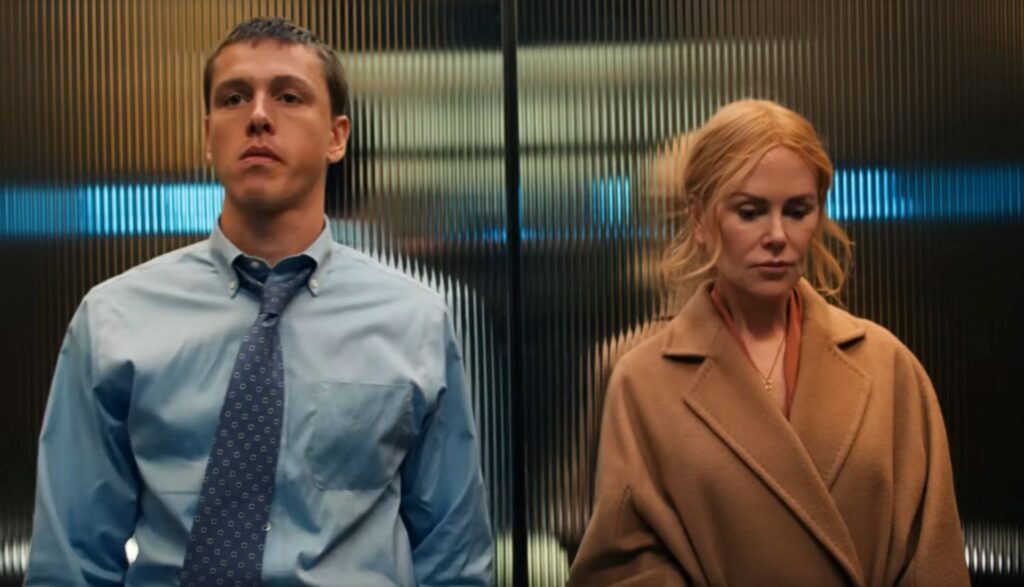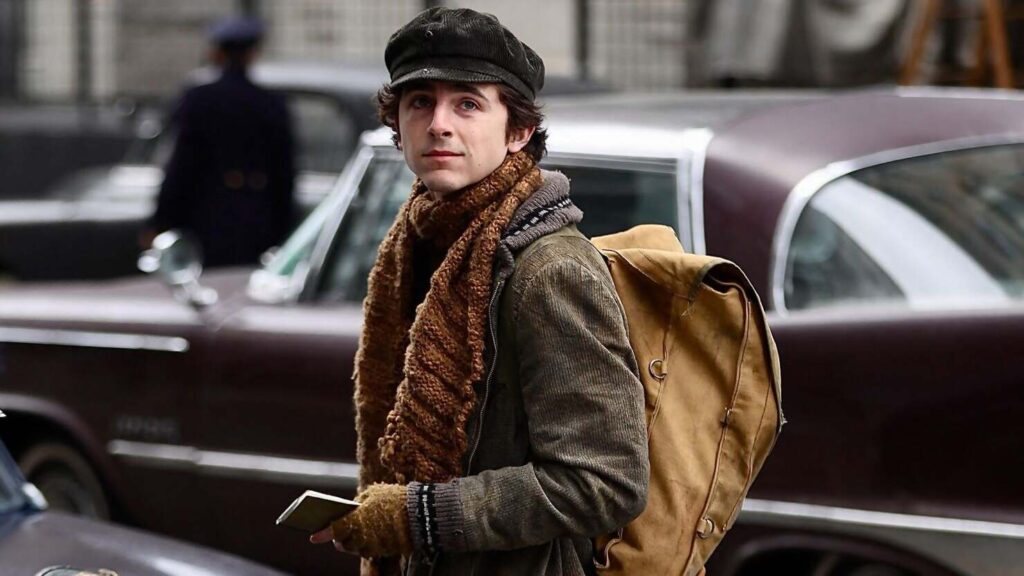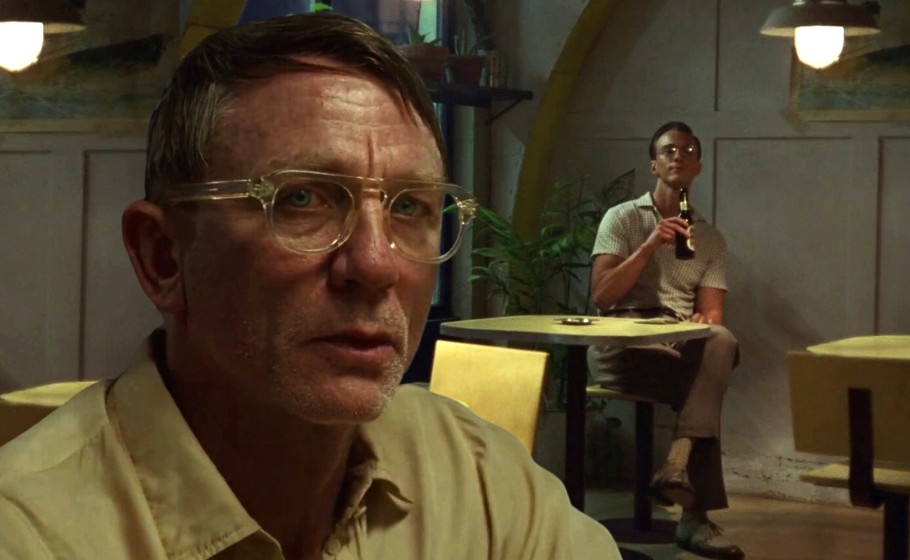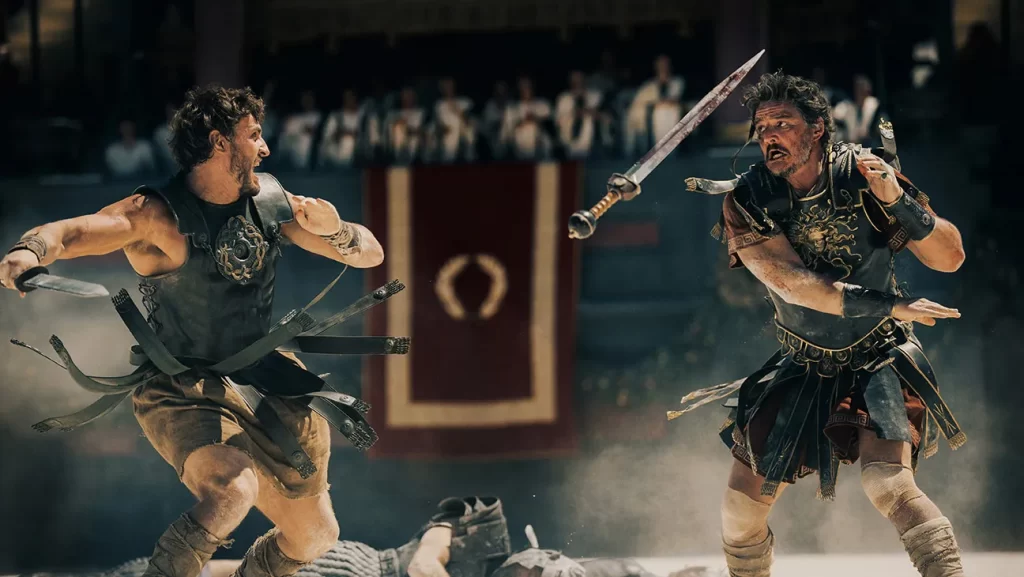The Brutalist: Nadirs of the Lost Architect
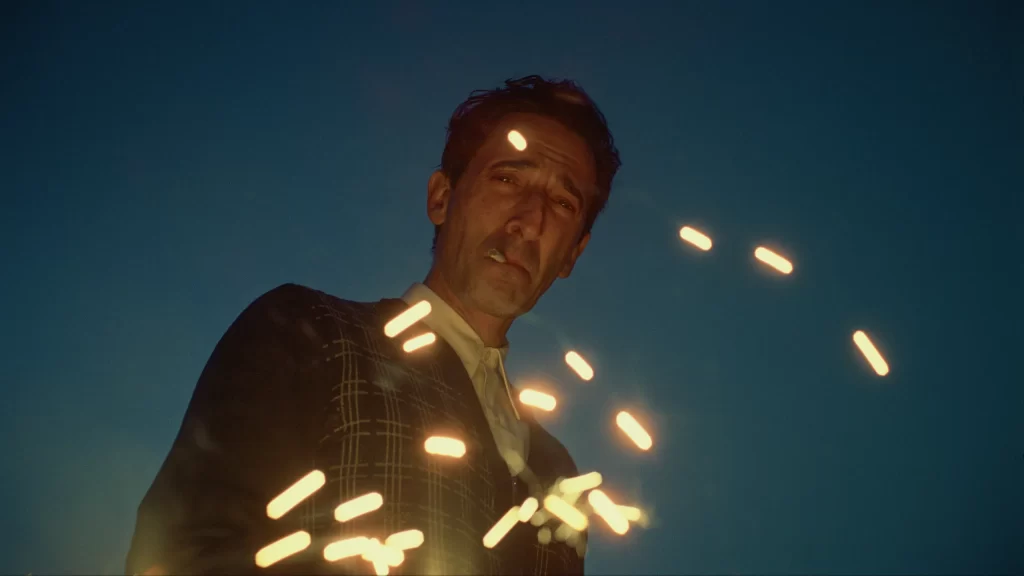
The American dream gets flipped upside-down in The Brutalist, Brady Corbet’s soaring, scathing portrait of post-war greed. Yet while it may be a troubling tale of moral decline, it opens with its hero going up, up, up, climbing toward the prospect of salvation. His name is László, and we first see him in the steerage of a ship docking at Ellis Island, his pallid skin and crooked nose long shielded from the light of day. As his mind recites a letter from his absent wife, he begins to ascend along with countless other sweaty hopefuls, the camera swooping and twisting like he’s navigating a labyrinth. When he finally bursts onto the deck, his face breaks into an ecstatic grin, the sunlight beaming down on him, the score’s trumpets booming in triumph. Never mind that our first view of Lady Liberty comes at an inverted angle, as though she’s about to plunge her torch—and its elusive promise of prosperity—into the harbor.
This knockout introduction instantly signals The Brutalist’s monumental ambition, both thematic and aesthetic. Much has been made of the film’s length (over three-and-a-half hours, including a 15-minute intermission), but its running time is just one of its many extravagances. Corbet, eschewing subtlety in favor of sheer grandeur, has delivered a truly maximalist production, a work of sweeping scope, vigorous style, and provocative rhetoric. The movie is, to borrow the tagline from Scott Pilgrim vs. the World, an epic of epic epicness. Read More

